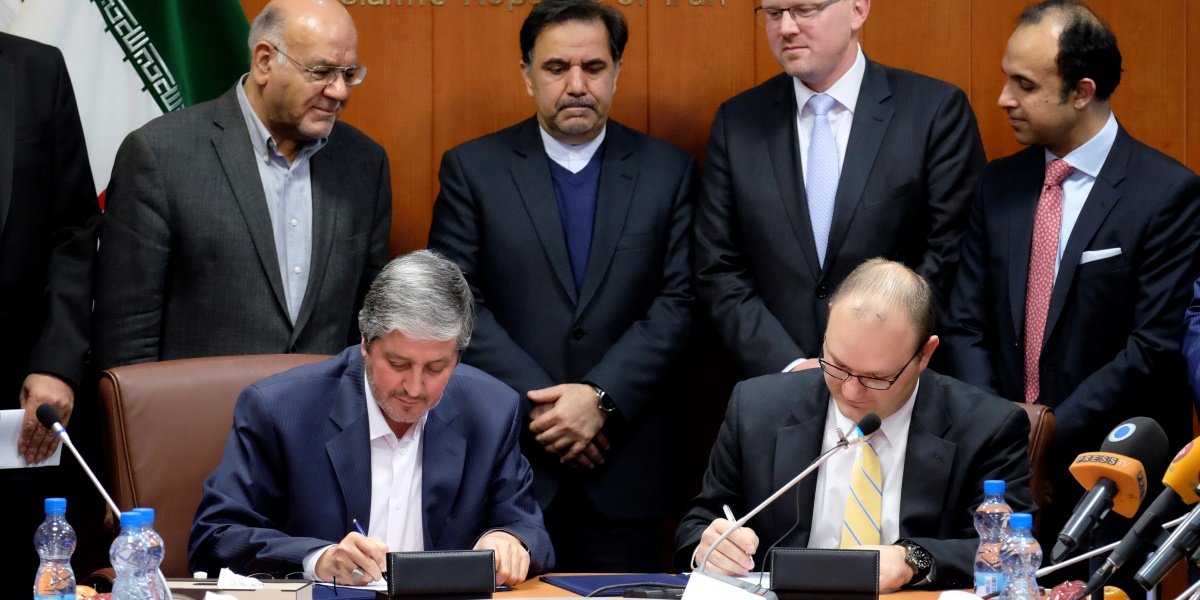Trump's Miscalculations and Turkey's Future
Needless to say, Trump was proven wrong. nor is there any reason to believe that his predictions will turn out to be true any time soon
More


Turkey and the Wave of Instability
It does not make sense for the U.S. and the EU to problematize their relations with Turkey on an ideological basis; instead, they need a new perspective that focuses on rational interests and long-term stability in the region
More
In the wake of rising geopolitical tensions among major global powers, rising far-right movements and xenophobia, economic protectionism and regional turf wars, nation-states are strongly reasserting themselves
It is time for global actors to take some initiatives against the security crisis led by the unpredictable regime in North Korea
Ahead of Turkey's 2019 elections, the country will be compelled to deal with domestic and international challenges.
Targeting Erdoğan and Turks may now seem to help German politicians in the upcoming elections, but escalating the current tension will irreparably harm Berlin's already troubled relations with Ankara
Will the Military Direct Trump's Middle East Security Policy?
Current Trump's Middle East security policies are military-directed and the light footprint option seems the best strategy for future U.S. security policy.
More


A Catalog of US's Double Standards in Mideast
There was no surprise in seeing open or covert U.S. support for various military coups, taking sides in civil wars, or instigating military invasions to "liberate" countries
More
The only reason behind the Gulf crisis may not be Trump's 'selling security to rich countries' policy. The financial deal between the parties might also have played a big role
Why will the Qatar crisis make the region more vulnerable to security issues? What are the main problems of isolation of Qatar? How would the ongoing crisis affect regional conflicts?
Unfortunately, the ambitions of regional powers stop them from addressing pressing problems. The Qatar crisis is a case in point.
SETA Foreign Policy Studies Director Ufuk Ulutaş said that the recent Gulf crisis is an attempt to redesign Middle East politics and it is not about the alleged support of terrorism by Qatar, but rather a result of Qatar following its own terms in regional matters.
It is true that the Iran expansionism is one of the great threats that must be stopped. However, Trump's current policy on Iran could only cause more chaos and terror in the Middle East
"Difficult choices" of various stakeholders in the Syrian conflict will entail serious consequences. With Bashar Assad getting closer to remaining in power throughout the transition period, the disintegration of Syria and the YPG's future will emerge as the main policy issues.
While Trump has to deal with the senior figures of the U.S. establishment, who voice their dislike of him at every opportunity, he also needs to develop policies to consolidate his own base
In the Middle East, the Trump administration wants to defeat Daesh in the short run and then focus on containing Tehran's regional hegemony
Whether the current negotiations will be able to solve the Syria crisis is still uncertain, but it is good to see that at least something has started to be done in the name of peace
Although the incoming Trump administration's strategy in the global arena remains blurry, it is certain the world will be never the same after the inauguration ceremony
The next U.S. administration is more willing to work with Russia and work on eliminating Daesh threats. However, there is still some ambiguity about the extent of cooperation and whether there will be any joint effort to resolve the crisis in Syria
Iran is trying to establish its own area of influence before Trump is sworn in and points to Iran as the main other in the Middle East
The rise of populism on the back of anti-immigrant sentiment and protectionism slowly eradicates the West's liberal credentials

















